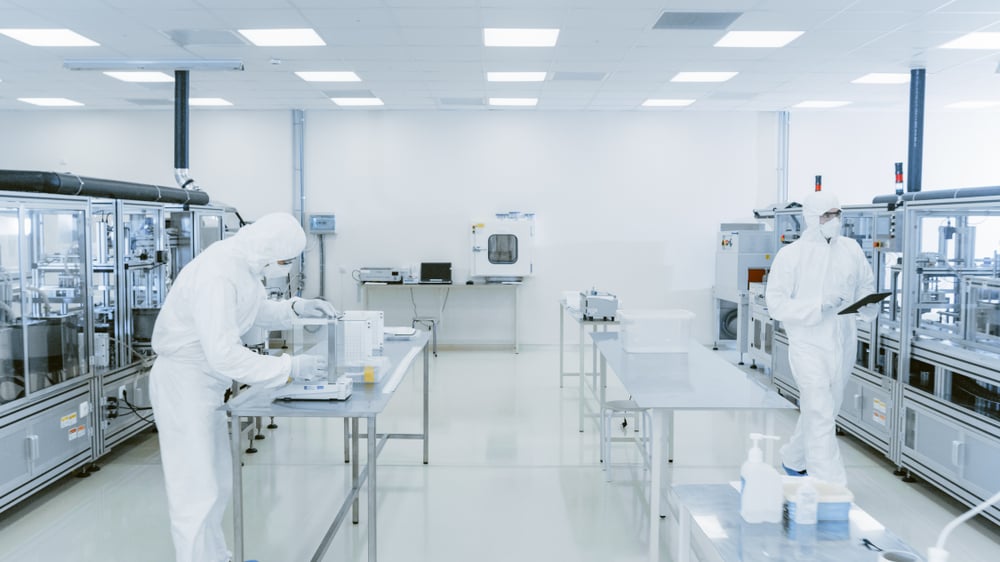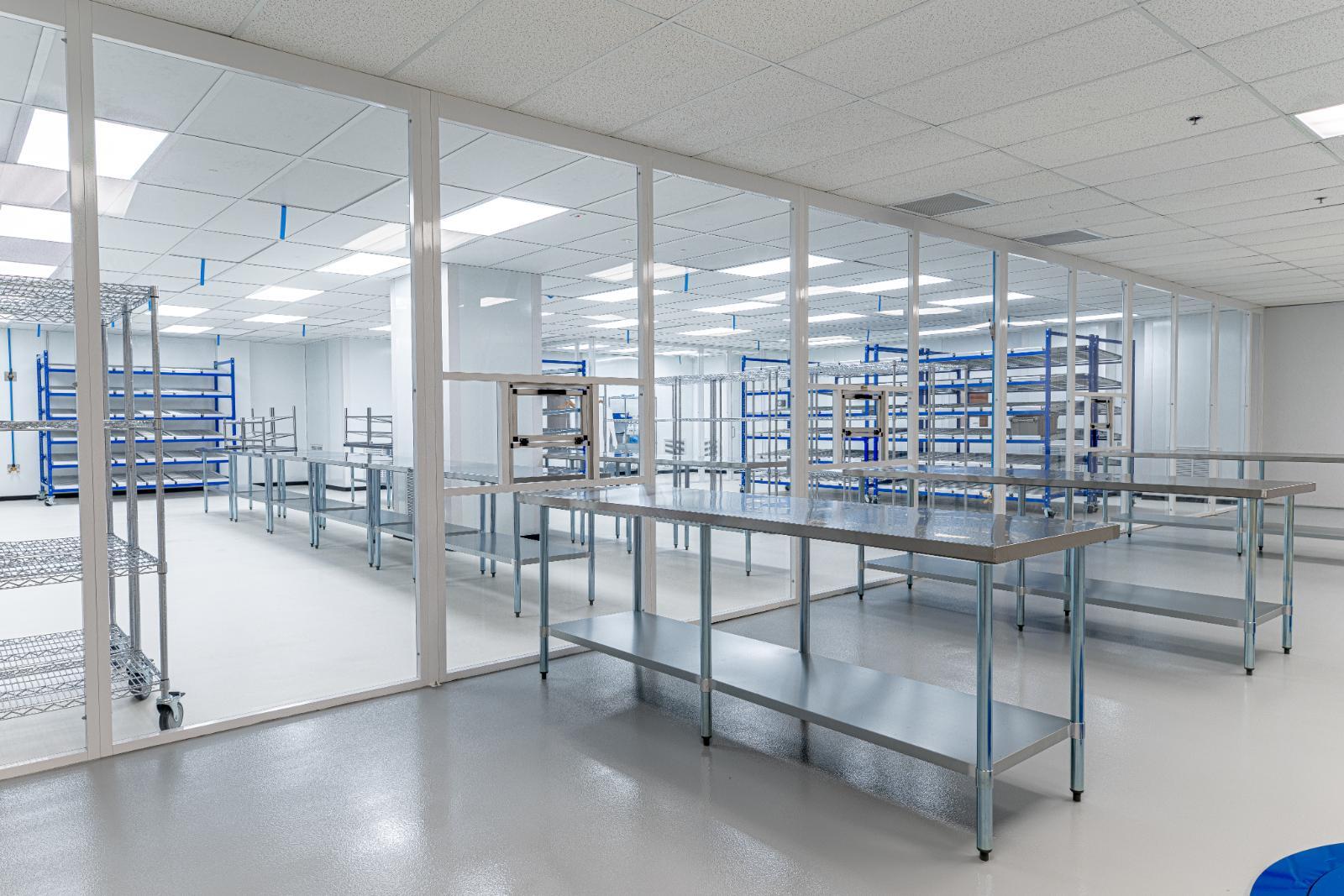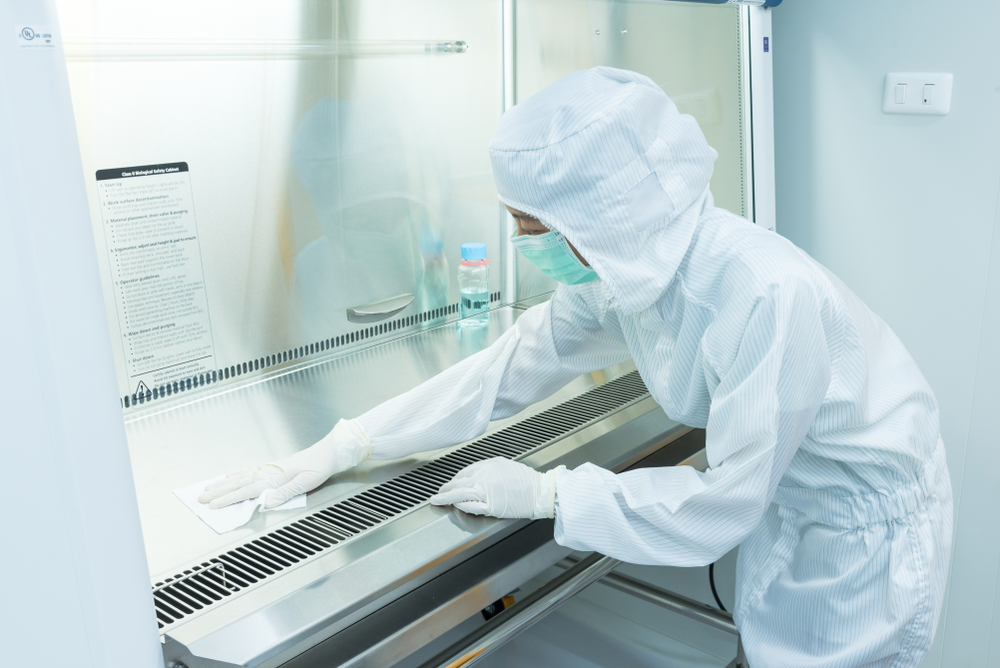The Ins and Outs of Modular Cleanroom Construction—and Why It’s the Future

Agility isn’t just an advantage in today’s industrial landscape—it’s a necessity. Emerging technologies, shifting global supply chains, and a constantly changing regulatory environment demand that businesses be ready to adapt on short notice. This need for flexibility extends to every corner of your operation, including cleanroom infrastructure.
If your cleanroom requirements shift tomorrow—whether it's an expansion, reconfiguration, or relocation—can your setup accommodate those changes? Traditional stick-built cleanrooms are notoriously rigid, often requiring costly reconstruction for even modest changes.
Modular cleanrooms are instead engineered for adaptability. They’re designed to evolve with your business, offering the flexibility and scalability many industries demand. And the streamlined modular cleanroom construction process helps you reach operational readiness faster—without compromising quality or compliance.
What Are Modular Cleanrooms?
Modular cleanrooms are scalable, reconfigurable environments built to meet the same strict contamination control standards as traditional cleanrooms. Unlike traditional builds, modular cleanrooms are constructed using prefabricated wall panels and components that are manufactured off-site and delivered ready for rapid on-site assembly. These panels can be easily repositioned or added to as operational needs evolve.
Modular cleanroom systems typically fall into three main categories:
Modular Hardwall Cleanrooms
Hardwall cleanrooms use solid panels made of robust materials such as stainless steel, aluminum, vinyl, PVC, or fiberglass-reinforced plastic (FRP). These are the most structurally durable modular cleanrooms and are suitable for all ISO classifications, including the most stringent.
While hardwall systems can be built using traditional construction, they are more often deployed as modular systems due to their flexibility and ease of installation. These modular hardwall cleanrooms provide high contamination control and long-term structural stability, making them ideal for applications requiring strict environmental conditions.
Modular Softwall Cleanrooms
Softwall cleanrooms use flexible, coated sheets or lightweight panels suspended from a ceiling grid. These cleanrooms are ideal for ISO Class 7-8 environments and offer a highly adaptable and cost-effective option for facilities with less stringent contamination requirements.
While they provide slightly less structural rigidity, the lightweight design of modular softwall cleanrooms allows for rapid assembly, disassembly, and relocation. This makes softwall cleanrooms particularly valuable for temporary setups or environments that frequently change configurations.
Modular Rigidwall Cleanrooms
Rigidwall cleanrooms strike a balance between hardwall and softwall options. Built using clear, flat acrylic or polycarbonate panels, they offer transparency and visibility into the cleanroom process—an advantage for oversight and operational efficiency.
Suitable for ISO Class 5-8 environments, modular rigidwall cleanrooms are slightly more flexible than hardwalls and provide a solid yet adaptable solution for facilities requiring both visibility and moderate contamination control.
Understanding the Modular Cleanroom Construction Process
Modular cleanroom systems dramatically reduce construction time, with some configurations going from delivery to operation in just hours or days. This minimizes operational disruption and accelerates your time to productivity—an essential advantage in fast-paced industries.
Let’s explore the modular cleanroom construction process, from start to finish:
#1. Fabrication
The modular cleanroom construction process begins off-site in a controlled manufacturing environment. Here, each cleanroom component is precisely fabricated to meet your facility’s specific requirements. This approach enhances quality assurance, speeds up delivery timelines, and limits on-site disruption.
Keep in mind that not all manufacturers offer the same level of prefabrication. Some provide truly modular solutions, where panels are pre-cut, pre-fitted with electrical and control systems, and shipped with embedded window and access panels. Others may ship generic panels that require cutting and fitting on-site—introducing noise, dust, and delays. At Encompass Cleanrooms, we clarify with our manufacturing partners how “modular” a system truly is, ensuring you’re prepared if any additional work will be needed.
#2. Delivery
Once fabrication is complete, the modular cleanroom components are carefully packaged and shipped to your facility. Depending on your preferences, your in-plant team may choose to manage the installation using provided instructions and support resources. Most facilities opt to have our Encompass Cleanrooms experts on-site at delivery to coordinate transport, unpack components, and oversee installation from day one.
#3. Installation
Installation is fast, precise, and significantly less intrusive than traditional construction. Cleanroom walls are erected first, followed by the roof deck that supports the ceiling grid. Next, the HEPA filtration units, lighting, and conduit systems are installed. We may also integrate with your existing HVAC units or install them. Flooring is laid using cleanroom-specific materials like epoxy or heat-welded vinyl. Whether assembled by your team or our technicians, the entire build process is engineered for speed and simplicity.#4. Testing
Once modular cleanroom construction, delivery, and installation is complete, the contamination-free environment undergoes a thorough final cleaning and comprehensive testing to ensure it meets required specifications. Our team provides training for your staff, all necessary documentation, and ongoing support to ensure your long-term success.Key Advantages of Modular Cleanroom Construction
The benefits of modular cleanroom systems go far beyond speed and convenience. Here are some of the main benefits:
- Versatility: You can reconfigure, expand, or relocate components with minimal disruption—whether you're scaling a softwall cleanroom for a seasonal project or upgrading a hardwall system for new product lines.
- Tax Advantages: Because modular cleanrooms are typically categorized as tangible personal property, they qualify for accelerated depreciation over seven years instead of the 39-year depreciation period of permanent structures.
- Cost Efficiency: Prefabrication, streamlined installation, and reduced waste from modular cleanroom construction contribute to more reasonable upfront costs and lower total cost of ownership compared to conventional builds.
- Time Savings: While traditional cleanroom builds can take months, modular cleanroom construction takes just hours or days. Plus, since most components arrive ready to assemble, your team avoids the delays and disruptions typical of stick-built construction.
- Simplified Maintenance: Removable wall panels and modular components allow for quick repairs, upgrades, and replacements without disrupting the entire space. This minimizes downtime and reduces ongoing maintenance costs.
- Customization: From layout to features and more, modular cleanrooms offer unmatched customization. Need to change your layout? Upgrading to a higher ISO class? Modular systems allow you to adapt with minimal rework or downtime.
How Modular Cleanrooms Serve Industry-specific Needs
Every industry has unique requirements for cleanliness, flexibility, and speed. Modular cleanrooms provide a tailored solution for each:
Pharmaceuticals
Strict regulations govern compounding pharmacies and IV rooms. Quick modular cleanroom construction allows you to achieve compliance faster. These systems can also connect directly to your facility’s plumbing and electrical systems, further supporting fast deployment.
Semiconductors and Electronics
Microchip fabrication and nanotechnology commonly require ISO Class 5 or cleaner environments. Modular cleanrooms provide the ultra-clean conditions essential to preventing contamination—helping manufacturers stay ahead in a rapidly advancing tech landscape.
Biotechnology
Whether producing vaccines, conducting genetic research, or manufacturing biopharmaceuticals, biotech operations require precise environmental control. Modular cleanrooms provide sterile environments that support innovation and regulatory compliance.
Aerospace
Aircraft and spacecraft development depend on contamination-free environments to ensure the performance and reliability of critical components. Modular cleanrooms offer the compliance and adaptability needed for safe, consistent production in this high-stakes industry.University Labs and Research Facilities
From chemistry labs to forensic analysis units, university research centers require adaptable, high-performance environments. Modular cleanrooms provide scalable solutions that can be reconfigured as research needs, student populations, or grant funding evolve.
Military
Weapons and defense manufacturing must maintain strict safety and security protocols. Modular cleanrooms help mitigate risk by providing tightly controlled environments for dangerous compounds and sensitive technologies.
Modular Cleanroom Construction by Trusted Technical Experts
At Encompass Cleanrooms, we bring decades of experience to the modular cleanroom construction process. Our flexible solutions are engineered to meet the highest standards of your industry—while delivering the performance, flexibility, and speed you demand.
If you’re considering a modular cleanroom project, let’s talk. Our technical team is here to help futureproof your facility. Contact us today to start planning.


